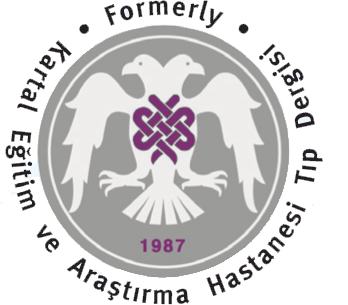Cross-sectional Study about Informed Consent for Patients Undergoing Hyperbaric Oxygen Treatment
Selin Gamze Sümen1, Esin Akgul Kalkan2, Özgür Özerdoğan31Department of Underwater and Hyperbaric Medicine, University of Health Sciences, Kartal Dr. Lütfi Kırdar City Hospital, İstanbul, Türkiye2Çanakkale Onsekiz Mart University, Faculty of Medicine, Forensic Medicine Department, Çanakkale, Türkiye
3Çerkezköy District Health Directorate, Tekirdağ, Türkiye
INTRODUCTION: In this study, we aimed to evaluate the processes of informed consent and identify factors affecting the comprehension and decision-making of the patient who undergoes hyperbaric oxygen treatment (HBOT).
METHODS: This cross-sectional study group consisted of patients admitted to the Department of Underwater and Hyperbaric Medicine. Patients were verbally informed about the process and allowed to read the informed consent form before they received HBOT. Having provided the information of consent, the participants completed a questionnaire including the descriptive features, an informed consent checklist form, a Standardized Mini Mental Test (SMMT), and screening tests for decisional conflict. The results were evaluated.
RESULTS: Fifty-six patients participated in the study. The mean age was 46.4±13.5 years and 75% of patients were men. Among the participants, 5.4% tended to feel uncomfortable with the decision they made, and 7.1% experienced decisional conflict. When the patients were asked “Who is the best person to decide about the treatment recommended for you?”, 53.6% of patients responded as “The doctor.” When the scales and form points used in the study were compared in terms of gender and educational level, statistically significant differences were observed between the points for SMMT (0.048) according to gender and the points for SMMT (0.001) as well as the screening test for decisional conflict (0.027) according to educational status.
DISCUSSION AND CONCLUSION: The current research is the first study in the literature to show the crucial role of informed consent and the factors affecting comprehension as well as the decision of the patient undergoing HBOT. As a result, Underwater and Hyperbaric Medicine physicians must consider various aspects of the consent process to reduce the risk of malpractice and ensure good clinical practice.
Keywords: Decision, hyperbaric oxygen treat-ment; information; informed consent; mini-mental test.
Hiperbarik oksijen tedavisi gören hastalarda bilgilendirilmiş onam hakkında kesitsel çalışma
Selin Gamze Sümen1, Esin Akgul Kalkan2, Özgür Özerdoğan31Sağlık Bilimleri Üniversitesi, Hamidiye Uluslararası Tıp Fakültesi, Kartal Dr. Lütfi Kırdar Şehir Hastanesi, Sualtı Hekimliği Ve Hiperbarik Tıp Anabilimdalı, İstanbul2Çanakkale Onsekiz Mart Universitesi, Tip Fakultesi, Adli Tıp Anabilimdalı,Çanakkale
3Çerkezköy İlçe Sağlık Müdürlüğü, Çerkezköy Tekirdağ
GİRİŞ ve AMAÇ: Bu çalışma ile, hiperbarik oksijen tedavisi (HBOT) uygulanan hastaların aydınlatılmış onam süreçlerinin değerlendirmesi, verilen bilgiyi anlamaları ve tedavide karar vermelerini etkileyen faktörlerin belirlenmesi amaçlanmıştır.
YÖNTEM ve GEREÇLER: Bu kesitsel çalışma grubunu Sualtı ve Hiperbarik Tıp Kliniğine başvuran hastalar oluşturdu. HBOT planlanan hastalara süreç önce sözlü olarak anlatıldı ve ardından bilgilendirilmiş onam formu kendileri tarafından okunmasıyla tedavi hakkında bilgi verildi. Hasta-lara onam bilgileri verildikten sonra, kendilerine tanımlayıcı özellikleri belirten form, bilgilendirilmiş onam kontrol listesi, Standartlaştırılmış Mini Mental Test (SMMT) ve hastalarda kararda çelişkiyi ölçen testlere verilen yanıtlar değerlendirildi.
BULGULAR: Çalışmaya 56 hasta katıldı. Yaş ortalaması 46.4±13.5 yıl olup, hastaların %75’i erkekti. Katılımcılar arasında, %5.4’ü karardan emin olmama eğilimindeydi ve %7.1’i kararda çelişki yaşadı. “Sizin için önerilen tedaviye karar verecek en iyi kişi kimdir?” sorusuna hastaların %53.6’sı ‘’doktor’’ olarak yanıtladı. Çalışmada kullanılan ölçek ve formların sonuçları değerlendirildiğinde, cinsiyet ve eğitim düzeyi açısından karşılaştırıldığında, cinsiyete göre SMMT (0.048) puanları, eğitim durumuna göre SMMT (0.001) puanları ile karardan emin olma testi (0.027) arasında farklılık istatistiksel olarak anlamlı bulundu.
TARTIŞMA ve SONUÇ: Bu araştırma, HBOT uygulanan hastalar için aydınlatılmış onamın önemini ve kararla beraber verilen bilgiyi anlamayı etkileyen faktör-leri gösteren literatürdeki ilk çalışmadır. Malpraktis riskini azaltmak ve iyi klinik uygulamaları için Sualtı Hekimliği ve Hiperbarik Tıp doktorları tedavi planladıkları hastalarının onam sürecinin çeşitli yönlerini değerlendirerek yürütmelidir.
Anahtar Kelimeler: Aydınlatılmış onam, bilgi; hiperbarik oksijen tedavisi; karar; mini-mental test.
Manuscript Language: English




















